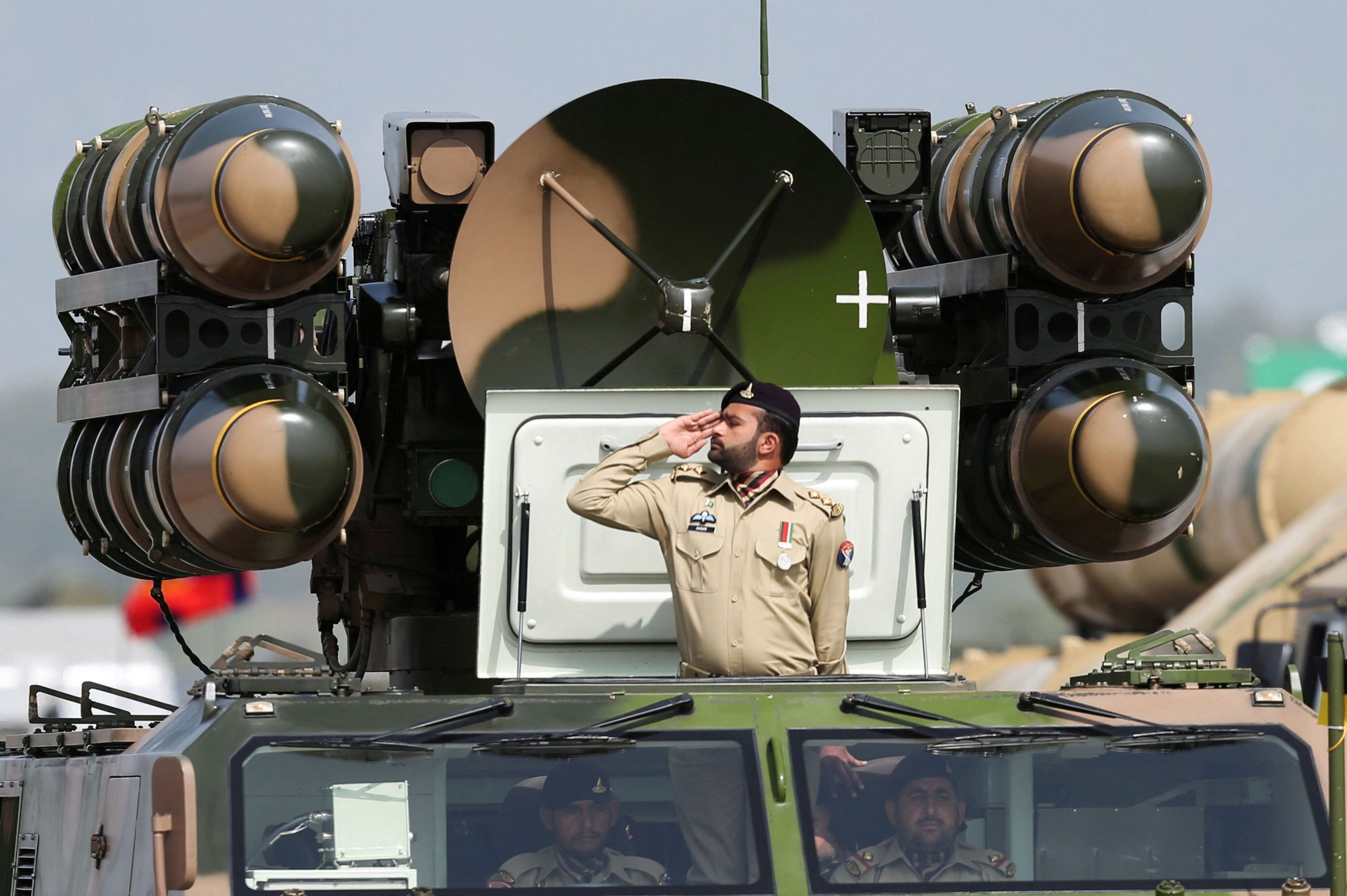WASHINGTON—Weeks before it leaves office, the Biden administration said that Pakistan is developing a long-range ballistic missile that could eventually provide nuclear-armed Islamabad with a weapon capable of striking the U.S.
The administration disclosed the intelligence about Pakistan’s secret missile activities and imposed sanctions against a state-owned entity involved in the work after repeated efforts to press its concerns in confidential channels fell short, U.S. officials said.
“The list of countries that possess both nuclear weapons and the missile capability to directly reach the U.S. homeland is very small, and they tend to be adversarial,” deputy national security adviser Jon Finer said Thursday. “So candidly, it is hard for us to see Pakistan’s actions as anything other than an emerging threat to the United States.”
The White House warning underscored a growing rift between Washington and Islamabad, which was once considered such a vital U.S. partner in South Asia that it was designated as a “major non-NATO ally” by the George W. Bush administration two decades ago.
The newly disclosed intelligence points to efforts by Pakistan to expand the reach of its missile force, including the development of equipment to test large rocket motors, officials said.
On Saturday, Pakistan’s foreign ministry spokeswoman said that Finer’s allegations were “unfounded,” “devoid of rationality” and “unhelpful for the overall relationship.”
The development of a long-range missile that could target the U.S. would take several years and perhaps as long as a decade, a senior Biden administration official said.
“We’re trying to build this pressure to get ahead of this problem because we don’t want Pakistan to go down this road so far that we are dealing with something that is more imminent,” the administration official added.
Pakistan has long had a close military relationship with China, which also views India as an adversary and has supplied the Pakistani military with arms and assistance for its missile program.
Finer said the U.S. is seeking a cooperative relationship with Pakistan and has worked with Islamabad on counterterrorism over the years. Despite ups and downs in relations, the U.S. has sought to preserve channels of communication, in part because of Pakistan’s position in the region and its status as a nuclear armed state.
The U.S. focus on countering China and on improving relations with India has strained ties in recent years with Islamabad, which has become less important to Washington since the U.S. withdrawal from Afghanistan.
Under Prime Minister Shehbaz Sharif it has moved in an increasingly authoritarian direction largely because of the influence of the military, which has long wielded considerable power. Islamabad’s nuclear program has been seen as aimed at India, also a nuclear-armed power with which it has fought three major wars since 1947.
The decision to publicize U.S. intelligence at the end of President Biden’s term in effect leaves the matter to President-elect Trump, who slashed security assistance to Pakistan during his first term and demanded it take a tougher stance against terror networks on its territory.
Finer spoke at an event sponsored by the Carnegie Endowment for International Peace and the Arms Control Association, and his comments were described by other senior administration officials as part of a broader diplomatic effort to pressure Pakistan to halt the program.
“If these trend lines continue, Pakistan will have the capability to strike targets well beyond South Asia, including in the United States,” Finer said of Pakistan’s effort to develop a long-range missile. “Just looking at a map and looking at ranges, you know, we believe that this is fundamentally focused on us.”
He declined to say why Pakistan might want to develop such a longer-range missile. But some analysts said that Islamabad might be seeking a way to deter Washington from assisting India if another war erupted between Pakistan and India.
Pakistan might also be seeking to raise the potential risks of a U.S. effort to forcibly disarm Islamabad’s nuclear arsenal, though U.S. officials said Washington has no intention to do so.
Pakistan’s nuclear arsenal is slowly increasing and is currently about 170 warheads, according to Hans Kristensen of the Federation of American Scientists, a nonprofit that looks at security issues.
The Pakistan foreign ministry spokeswoman said that the country’s military programs “are meant to defend its sovereignty and preserve peace and stability in South Asia.”
The concern over Pakistan’s missile program comes as the U.S. is facing a growing Chinese nuclear force, a strategic-arms treaty with Russia that is set to expire in February 2026 and North Korea’s efforts to build up its nuclear arsenal.
A classified directive issued earlier this year by President Biden instructs the Pentagon to develop options to simultaneously deter aggression by China, Russia and North Korea.
On Wednesday, the State Department announced sanctions against the National Development Complex in Islamabad, which the U.S. said is responsible for the development of Pakistan’s Shaheen ballistic missiles and has worked to acquire items for a long-range missile program, including special vehicle chassis and missile-testing equipment.
It is the first time that the U.S. has sanctioned a Pakistani state-owned enterprise involved in missile development, Finer noted.
Sanctions were also imposed on three Pakistani companies in Karachi, which the State Department said were also involved in supplying equipment for a long-range missile program. The U.S. has previously sanctioned a Chinese institute and Chinese companies for aiding Pakistan’s missile program.
Write to Michael R. Gordon at michael.gordon@wsj.com



